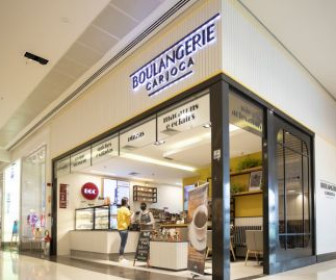In Belgium business cards should be printed in English on one side and Dutch or French on the other, depending on where you’re planning on doing business. Be sure to do your homework before launching.
If you’re going to visit Bruges, Belgium—and you should, it’s beautiful—make it a vacation, not a business trip looking for franchise partners. The historic city is designed for independents.
On a recent trip there, I spotted only a handful of U.S. brands, excluding the trifecta you can bet on finding in every foreign metro—McDonald’s, KFC and Subway. Subway attempted to break into the charming village that time forgot, but its historic building’s interior was stripped clean and a barrier was placed in front of the door at the time of my visit. Even the bustling train station was void of U.S. franchises. There is no airport, which eliminates an opportunity to populate food courts.
Starbucks, which is usually competing side-by-side with local coffee shops, was also noticeably missing in action.
Crowne Plaza
A large, modern Crowne Plaza in Bruges, with a large outdoor dining area that opened onto a square.
What I did spot were Oil & Vinegar; Pearle Vision; Planet Yogurt, a chain from Kenya, not to be confused with Yogurt Planet, a three-store chain out of Texas; Crowne Plaza and Chi-Chi’s, a Mexican chain that has pretty much disappeared from the U.S.
The restaurant chain, started in Minnesota, is now owned by Hormel, which primarily uses the Chi-Chi’s name to sell products in supermarkets, according to Terry Smith, who at one time owned the rights to develop the brand outside the U.S. and Canada. In 2000, he sold the rights to develop the Middle East and Europe to his franchisees in Brussels, Belgium. They, in turn, have continued to subfranchise. The group currently has 14 Chi-Chi’s in Belgium. A new one is opening in Holland by the end of this year, according to Francis Leroy, CEO for the Chi-Chi’s international company. According to its website, the franchise fee, which they refer to as the “entrance fee,” is €25.000; the royalties is “5 percent of the monthly net turnover” and there’s a 3 percent marketing fee. “The turnover of a starting Chi-Chi’s restaurant should grow up to € 800.000 in the second year, the website states, adding that figure is based on historical experience and is not guaranteed.
The Bruges restaurant, located near the tony shopping district, is positioned, like all the Chi-Chi’s in Europe, as Tex-Mex, making it a unique offering in the tourist city, which has a handful of steakhouses and Mexican restaurants, Leroy said. The location is doing well, he adds.
Not much real estate in Bruges is vacant. Significant retail space is claimed by Belgium chocolate shops, more per capita than pretty much anywhere in the world, and coffee shops and pubs that serve a full menu, including local beer. A long wine list isn’t common in most restaurants, but the list of beers could fill a book.
carriage ride
Bruges is easily walkable, but taking a carriage ride is a better way to see the retail trade area.
The eating establishments all had different names and looks, lots of outdoor seating, but the menus were suspiciously identical. The menus were thick because the small list of food items was printed in several languages.
A better place to start your journey into Belgium may be Brussels, which is not only the capital of Belgium, but also of Europe.
Belgium is a founding member of the European Union and has one of the highest standards of living in the world. The country, which is the size of Maryland, is densely populated and has an enviable education system and infrastructure, according to the U.S. Commercial Service website.
Other large cities include Antwerp, Ghent and Charleroi.
While English is spoken, it’s not universal as in other countries. In Flanders, the northern region, Dutch is the official language, while in the southern region, French is more common.
Belgium is a safe country; the greatest hazard to visitors are the high prices, mostly in Brussels, according to the authors of “Kiss Bow or Shake Hands,” a guide for doing business internationally.
Here’s how the authors describe the business culture in Belgium:
• Belgian executives are willing to compromise, but the process may take a long time;
• Belgians may cope with adversity through self-deprecating humor;
Pearle Vision
Pearle Vision was one of a handful of franchises we saw in Bruges.
• They value privacy, so executives conduct business behind closed doors and expect appointments to be made ahead of time;
• Use titles with last names unless instructed to use first names: Mr. or Ms. for Dutch speakers and Monsieur and Madame for French speakers;
• Reply promptly to all correspondence, but expect the deal to take time.
As in all countries, except perhaps the U.S., businesspeople expect to get to know their prospective business partners as people first and then once the trust is established the business conversation begins.
But if you have to visit Belgium several times to get the deal done, it won’t be a burden.









